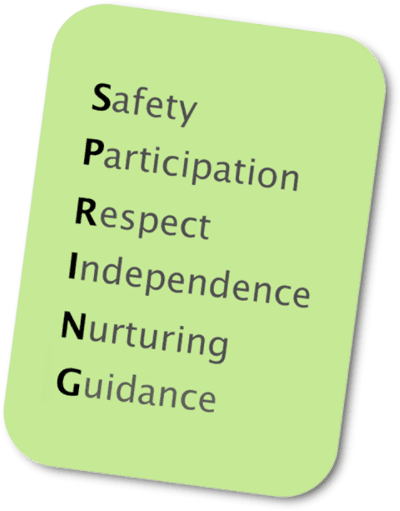“We all have the right to live a life free from abuse, exploitation and neglect; we deserve to be treated with love and dignity”.
In March 2000, the Department of Health published “No Secrets” which provided a framework for the inter agency collaboration on the development and implementation of procedures for the protection of vulnerable adults from abuse. In October 2005, the Association of Directors of Social Services supplemented this with Safeguarding Adults, a national framework of standards for good practice and outcomes in adult safeguarding work.
Further more, it is anticipated that the implementation of the Law Commissions proposals will take place in May 2012
Main Key principles
It is important to note that abuse occurs in all sectors of community and there should be no discrimination because of assumptions about class, gender, age, disability, sexual orientation, race, religion, culture or eligibility for support and protection.
Experience suggests that some people are more vulnerable to abuse than others because they are disempowered, disabled, impaired, ill or due to old age within society.
All professionals (Agencies, staff and volunteers) who have responsibility for the care of vulnerable people is it children or adults have a duty for the care, support and protection of vulnerable adults they come into contact with.
Therefore, you must make Adults at risk of abuse aware of their rights and given information, advice and support. They should be encouraged and enabled to access protection from the law and legal processes via your adult safe guarding team which is usually situated within Local Authority’s adult Social Services.
All professionals working with vulnerable adults must be proactive in promoting the well-being, security and safety of adults at risk of abuse consistent with their rights, mental capacity, personal choices and guidance.
Please be mindful that in most cases, the adult at risk of abuse will decide on the chosen course of action and this may not be what professionals want to hear. Your role is to give all possible support. In some cases, an adult with mental capacity may choose to remain in an abusive environment or situation. In these cases it is still extremely important to consider what advice and support can be offered to reduce their risk from harm.
Venerable adults and direct line staff must be encouraged to disclose any concern or worry that they may have in relation to the treatment and care of a vulnerable adult.
As we all know an abuse have no boundaries and appears to thrive on secrecy. The role of the referrer /Alerter is therefore of paramount importance in identifying, violent unscrupulous abusive behaviour and practice. Therefore we must fight this behaviour towards vulnerable people in our society.
Springcare Support Services: Working with Vulnerable people who may be at risk of harm.
Springcare Support Services believe that all their staff has a duty for the care and protection of vulnerable people. Hence they have a clear policy of zero tolerance of abuse.
Springcare support is aware of the ASB policy and endeavour to ensure that all safeguarding procedures is known and understood by their Service Users, relatives and friends as well as staff.
Springcare Support Services have safe recruitment practices in place to help reduce the risk of abusive behaviour and practice.
All Spring Care Support staff working with vulnerable people are afforded a position of status and authority in relation to service users. Services are provided in an environment which lessens the imbalance of power and encourages independence and self-advocacy for service users.
Springcare Support Services Staff are encouraged to be sensitive to individual, gender and cultural needs to minimise the risk of abuse.
Springcare Support Services believes in effective inter-agency working which is critical if vulnerable people are to be protected from harm. As we believe that consistent information sharing, collaboration and communication between agencies and professionals are all key elements in abuse prevention and detection.
We also believe that to ensure the welfare and protection of vulnerable adults we must avoid working in isolation.
Remember the aim is to stop abuse where it is happening and to prevent abuse where there is a risk that it may occur.
In our next practice matters, we will explore Cultural awareness in safe guarding adults and adult’s safe Guarding Plan.

